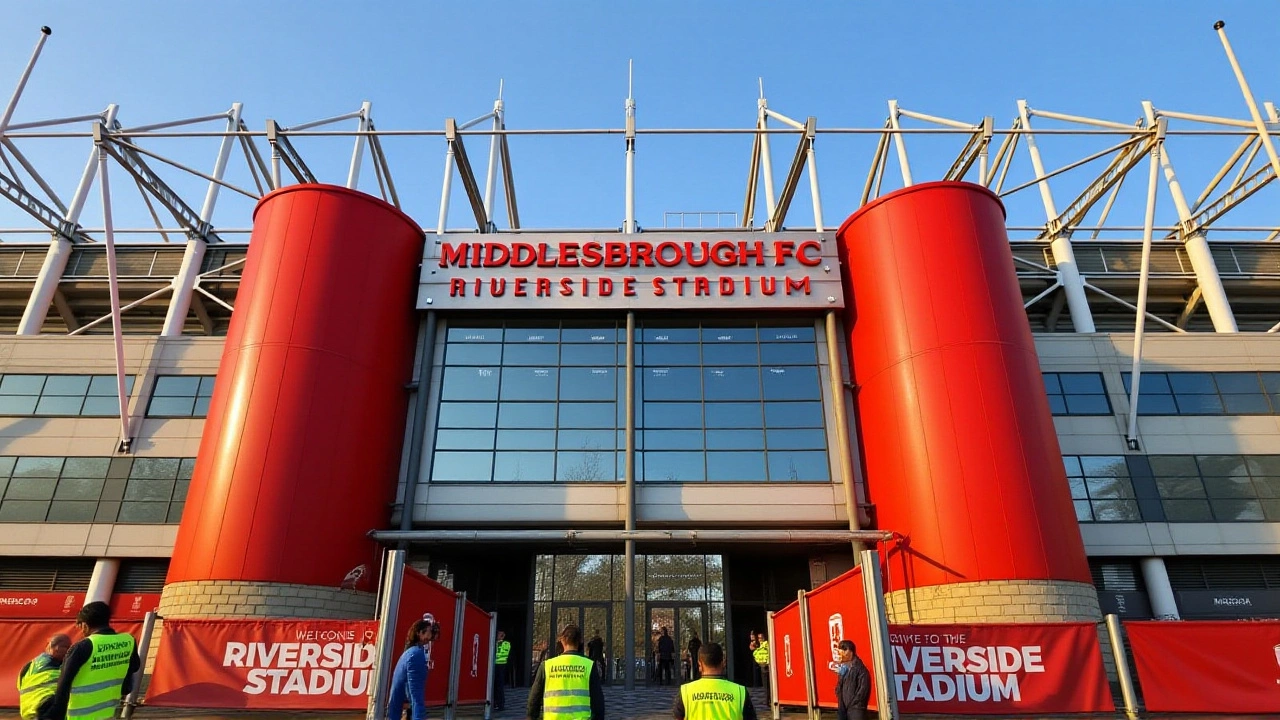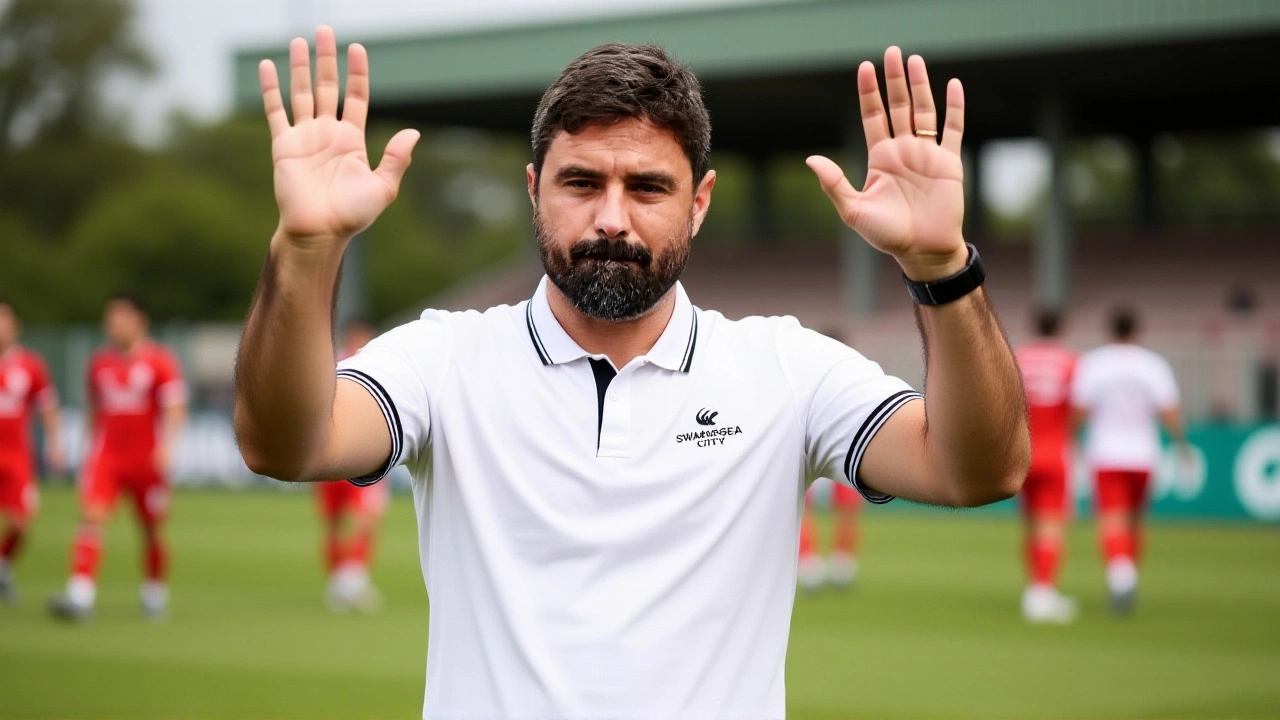Swansea City didn’t just fire a manager — they threw a wrench into their entire rebuild. Just days after sacking Alan Sheehan on November 15, 2025, the Welsh club found itself in the middle of a chaotic managerial scramble, with Swansea City Association Football Club now juggling a surprise late contender against the previously favored Kim Hellberg. The decision, confirmed in a YouTube video by George Elek from NotTheTop20 released at 0:07:17 UTC on November 15, came after a season that started with a 1-0 loss to Middlesbrough but quickly turned promising with four wins and one draw in the next five matches. Yet, ownership clearly wasn’t satisfied. They wanted more than momentum — they wanted a transformation.
The Fall of Sheehan: A Caretaker Who Outstayed His Welcome
Alan Sheehan wasn’t supposed to be the long-term answer. He stepped in as caretaker after the club’s summer overhaul, triggered by the retirement of club legend Joe Allen and the departure of five experienced defenders and goalkeepers — Kristian Pedersen, Cyrus Christie, Jon McLaughlin, Kyle Naughton, and Nathan Tjoe-A-On. Sheehan stabilized things, but his permanent appointment in August felt like a stopgap. By mid-November, the club’s board had decided that stability wasn’t enough. They needed a visionary. "They appointed him because they were desperate," said George Elek in his November 15 analysis. "Now they realize desperation doesn’t win promotions."The Hellberg Favorite — And the Ghost in the Machine
For weeks, Kim Hellberg was the name on everyone’s lips. The Swedish tactician, known for his high-pressing systems at Malmö FF and his work with the Swedish national youth teams, had been quietly interviewed. Sources close to the club told Wales Online that talks were "advanced," even nearing final stages. But then — the twist. A "late candidate" emerged, reportedly with strong ties to the club’s ownership group and a track record of turning around mid-table sides in the Championship. The name hasn’t been officially confirmed, but whispers point to someone who previously worked with the club’s new sporting director in Norway. "It’s not just a name," said one insider. "It’s a package. A whole staff. A philosophy. And it’s got them rethinking everything."The Other Contenders: Backroom Staff, Local Legends, and Past Glory
While Hellberg and the mystery candidate dominate headlines, two of Sheehan’s assistants are still in the mix: Richard Steerman and Darren O’Dea. Both have deep roots at the club — O’Dea played over 150 games for Swansea between 2012 and 2016. But as Elek bluntly put it: "I would be flabbergasted if either of these two got the job. They’re good men, but this isn’t about loyalty. It’s about evolution." Then there’s Eric Ramsey, a former academy coach who still lives in Swansea and coached local youth sides after leaving the club. He’s a sentimental favorite — the kind of man fans rally behind. But ownership? They’re looking for a global profile. And then there’s Russell Martin. The man who led Swansea to a 10th-place finish in 2024, and who’s now managing Cardiff City, remains a theoretical option. "He’s popular," Elek admitted. "But I’d be amazed if it’s him. This ownership group doesn’t hire former successes. They hire future disruptors."The Squad That Changed Everything
The managerial search didn’t happen in a vacuum. It was triggered by a summer of bold, expensive moves. The £5 million signing of Zeidane Inoussa from BK Hacken was meant to be the spark. The £300,000 acquisition of Bobby Wales from Kilmarnock was a bargain hunt. Midfielder Ethan Galbraith came in on a free transfer after impressing at Leyton Orient. But the departures — especially Allen’s retirement — left a void in leadership and experience. The result? A team that plays with energy but lacks structure. The new manager won’t just need to win games — they’ll need to redefine the team’s identity.
What’s at Stake: Rebuilding a Legacy
Swansea City’s home, the Swansea.com Stadium, once echoed with European nights and Premier League pride. Now, it’s a place of cautious hope. The goal isn’t just survival in the Championship — it’s top-six contention. "They want to lead the Welsh side back to the top end of the EFL Championship table," Elek said. That means finishing above teams like Preston, Sheffield Wednesday, and Millwall — clubs with less history, but more stability. The new manager will inherit a squad with talent but no clear hierarchy. The challenge? Turn potential into pressure. And fast.What’s Next: The Clock Is Ticking
With the January transfer window looming, the club can’t afford a prolonged search. Sources say the board wants a decision by November 25 — before the next match against Huddersfield Town. If Hellberg’s deal collapses, and the late candidate isn’t finalized, they may pivot to a high-profile interim — perhaps even someone from the Bundesliga or Ligue 1. But the longer this drags, the more the squad’s morale risks unraveling. And in a league where momentum is everything, that’s a dangerous gamble.Background: The Rise and Fall of a Modern Club
Swansea City’s journey from Championship underdogs to Premier League innovators under Brendan Rodgers and Paulo Sousa still haunts their board. They’ve spent the last decade chasing that magic — hiring managers who fit a profile rather than a pedigree. The result? A revolving door. Since 2018, they’ve had eight permanent managers. Only Martin and Steve Cooper (2019–2021) delivered sustained success. The pattern is clear: when the board gets impatient, they fire. When they get scared, they hire a local. Now, they’re trying something different. Will it work?Frequently Asked Questions
Why was Alan Sheehan sacked despite a decent run of form?
Sheehan’s 4-1-1 record after the opening loss looked promising, but ownership felt he lacked the tactical vision to elevate the squad beyond mid-table. His appointment was always temporary, and his inability to integrate new signings like Zeidane Inoussa into a cohesive system raised red flags. The board believes they need a manager who can build a long-term structure, not just patch things together.
Who is the mystery late candidate, and why is the name being withheld?
The identity hasn’t been officially confirmed, but multiple sources suggest it’s a Scandinavian coach with prior ties to Swansea’s sporting director, possibly from Norway’s Eliteserien. The silence is strategic — the club wants to avoid fan speculation derailing negotiations. If confirmed, this candidate could bring a full coaching staff and a data-driven approach, something the club has lacked since Cooper’s departure.
How does the new manager’s profile differ from past appointments?
Past hires like Sheehan and Steve Cooper were either internal promotions or locally loved figures. This time, ownership is prioritizing international experience, data analytics expertise, and a proven ability to rebuild squads mid-season. They’re no longer chasing nostalgia — they want a manager who can replicate the high-pressing, youth-integrated model that worked in Scandinavia, not the possession-based style of the Premier League era.
What impact will this have on Swansea’s January transfer plans?
The new manager will have significant input into January transfers, likely pushing for at least two midfielders and a central defender. With Zeidane Inoussa still adapting and Bobby Wales struggling for consistency, the club may offload players like Ethan Galbraith or Cameron Burgess to fund new signings. The identity of the incoming manager will dictate whether they go for proven Championship performers or high-risk, high-reward young talents.
Is Russell Martin still a realistic option?
Unlikely. While popular with fans, Martin is currently managing Cardiff City — Swansea’s fierce rivals. Hiring him would spark outrage among supporters and create an unacceptable conflict of interest. Ownership knows this. Even if he were available, they’re actively avoiding former successes in favor of fresh, disruptive philosophies — a clear break from their past mistakes.
What does this mean for Swansea’s long-term future?
This is a make-or-break moment. If they appoint a manager who can blend youth development with Championship pragmatism, they could return to the Premier League conversation within three years. But if they choose poorly — again — the cycle of instability will continue. The club’s financial model, built on player sales and moderate spending, can’t sustain another decade of managerial churn. The stakes have never been higher.



